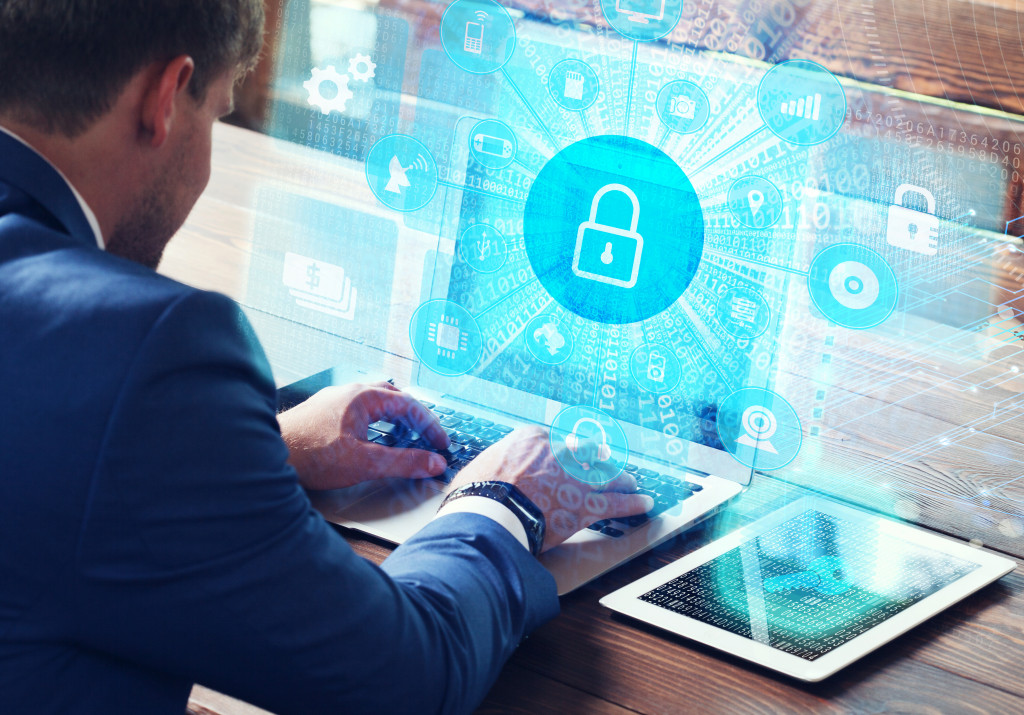Small businesses are just as vulnerable to cybercrime as larger enterprises are, and in some cases, they may be even more susceptible. This is because small businesses often don’t have the same resources that larger firms do, which means they may not have the same level of protection against cyberattacks. Additionally, small businesses may not have the same knowledge about cybersecurity and how to protect themselves from hackers.
That’s why it’s so important for small businesses to beef up their cybersecurity measures. There are several things they can do to improve their security, such as installing antivirus software, using strong passwords, and being vigilant about phishing scams. Small businesses can make themselves much less likely to fall victim to cyberattacks by taking these simple steps.

Use strong passwords and change them often
One of the simplest and most effective ways to improve your cybersecurity is to use strong passwords. A strong password is difficult to guess, so it’s unlikely that a hacker will be able to guess it. You should also change your passwords often, so if a hacker does manage to get access to one of your passwords, they won’t be able to use it for long.
There are several ways you can create strong passwords. One way is to use a mix of letters, numbers, and symbols. You can also make your passwords longer, so they’re more difficult to guess. And finally, you should never use the same password for more than one account.
Using strong passwords and changing them often can drastically cut down on the risk that a hacker will gain access to your accounts and cause trouble.
Consider professional IT support
Professional IT support is a great way to beef up your cybersecurity measures. When you have carefully managed IT support services, you have someone responsible for helping you protect your data and mitigate any risks of cyberattacks. They can help you stay vigilant about potential threats and strengthen the protection of your business and customers. As your business grows, it’s even more important to keep data safe.
If you’re not currently using professional IT support, consider talking to a few different companies and finding one that is a good fit for your business. You’ll be glad you invested when it comes time to protect your business from hackers.
Strengthen firewalls on all devices connected to your network or Wi-Fi connection
Firewalls are an important cybersecurity measure for protecting the business and its data. Firewalls act as a checkpoint, allowing only authorized users access to the network. They also act as an additional layer of defense against hacking or malware attacks. Businesses must update any firewall software they regularly use to combat the newest threats.
Run regular scans of all business devices for viruses and malware
Small businesses should run regular scans for viruses and malware on all their devices. This will help protect them from cyberattacks and ensure that their data is safe. Additionally, it’s a good idea to keep your antivirus software up to date so that it can detect the latest threats.
Businesses should do this regularly, ideally weekly or at least monthly. You should also check all the devices in your business for other software updates and make sure to install them when they come through.
Talk to your IT support provider if you’re unsure how to run a scan or update your antivirus software. They can help you set up and keep your business safe from harm.
Back up data regularly (and ensure you have multiple backups)
One of the most important things you can do to protect your data is to back it up regularly. This means making copies of your data, customer data and storing them in a safe place. If your business ever suffers a cyberattack or data loss, you’ll be glad you have backups to fall back on.
Ideally, you should have multiple backups of your data. That way, if one backup is damaged or lost, you still have others to fall back on. You can back up your data manually or use backup software that automatically does it for you.
Make sure you keep your backups up to date as well. If you let them get too far behind, you run the risk of losing data that is irreplaceable.
Use two-factor authentication wherever possible
Two-factor authentication is a security measure that requires two forms of identification to access an account or device. The most common form of two-factor authentication uses a password and a code that is generated by an app or sent to your phone.
This measure is incredibly effective in preventing unauthorized users from accessing your accounts. Especially if you have sensitive information stored in them, it’s important to use two-factor authentication whenever possible.
You can usually enable two-factor authentication on websites and apps by going into the settings menu. Look for the option that says “two-factor authentication” or “two-step verification.” If it’s not available, contact the support team for help.
Your business isn’t any different than others when it comes to cybersecurity because hackers are inevitably targeting small businesses. What sets you apart is how prepared you are to fight them off. With these reminders, you can better protect your business and ensure that it is safe from cyberattacks.




